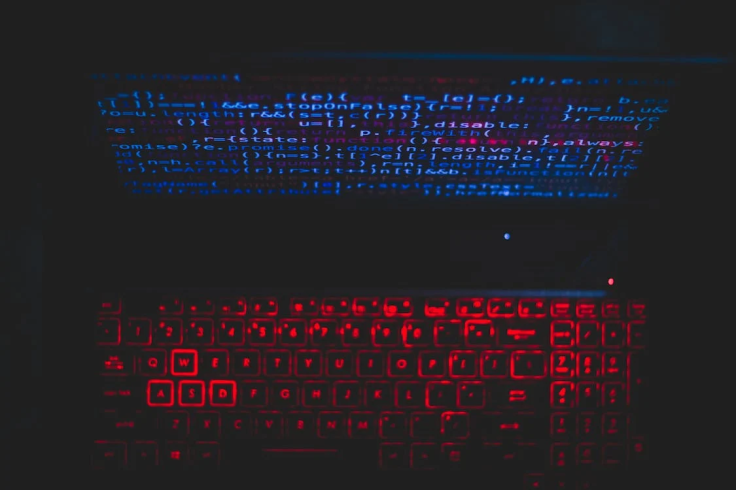The integration of artificial intelligence (AI) into plagiarism detection tools is not merely a technological advancement but has become a battleground in the broader campus culture wars, particularly in the aftermath of Harvard University President Claudine Gay's resignation amid plagiarism accusations.
As debates intensify, the use of AI is scrutinized for its potential to either unearth academic misconduct or unfairly disrupt careers, raising complex concerns within academic communities.

Harvard President's Resignation and AI's Role
Harvard President Claudine Gay's resignation on January 2, prompted by allegations of plagiarism, catalyzed discussions about the role of AI in scrutinizing academic integrity. Conservative activists and influential figures, notably hedge fund billionaire William Ackman, have advocated for AI-assisted plagiarism reviews, adding fuel to an already contentious debate. The incident underscores the challenges and consequences of employing AI technology to assess academic work.
The emergence of AI-powered plagiarism detectors presents a delicate balance between uncovering academic misconduct and ensuring fairness in the assessment process. While proponents argue that AI can efficiently identify instances of plagiarism that might have gone unnoticed, skeptics voice concerns about the potential misuse of the technology to target individuals without due process, context, or understanding of unintentional errors.
Spring Semester Uncertainties and Faculty Worries
As the spring semester commences, uncertainties loom over campuses, particularly those in Western Pennsylvania, where faculty, administrators, and students navigate the complexities of the intersection between AI technology and academic integrity. The fear that anyone with access to plagiarism detection software could potentially harm careers swiftly raises questions about the safeguards and ethical considerations surrounding the use of such tools.
Chris Bonneau, a University of Pittsburgh political science professor, acknowledges the complexities surrounding these controversies. Expressing concern about the potential misuse of accusations without due process or context, Bonneau emphasizes the need to differentiate between serious research misconduct and unintentional errors like missing quotation marks. He highlights the existing policies within universities to investigate genuine cases of research misconduct, which may now face distraction due to a potential influx of unfounded accusations.
Michael Berube, an author and Penn State University literature professor, views plagiarism detection software as a curveball in academia. With AI peeking under the hood, the unpredictable outcomes may reveal unintentional citations or paraphrasing issues. Berube expresses concern about the lack of guardrails to protect academia from potential overreactions. He notes that the recent controversies are part of a broader wave of challenges facing higher education, pointing to the increasing politicization of academia.
Political Dimensions in Higher Education
The campus culture wars, exacerbated by political divisions, add layers of complexity to the ongoing debates. Recent events, including the resignations of presidents from prestigious institutions and contentious congressional hearings on campus conduct codes, highlight the deep-seated tensions. The political right's scrutiny of higher education's liberal leanings, coupled with concerns about classroom indoctrination and diversity programs, has contributed to an emboldened pushback against perceived biases.
Harvard's Plagiarism Scandal and Culture Wars
Harvard President Claudine Gay's resignation amidst allegations of plagiarism serves as a flashpoint in the campus culture wars. The controversy stems not only from the accusations themselves but also from the political dimensions surrounding them. The right's longstanding dissatisfaction with higher education's liberal stance finds a focal point in incidents like these, leading to calls for a reckoning and fundamental changes in academia.
AI as a Billionaire's Weapon
William Ackman, the hedge fund billionaire and Harvard donor who advocated for Gay's ouster, sees AI-assisted plagiarism reviews as a potent weapon. He envisions AI searching for missing quotation marks and failures to paraphrase appropriately, signaling a potential shift in how academic records are scrutinized. Ackman's perspective reflects a larger trend of powerful donors influencing higher education, raising concerns about the increasing influence of wealthy individuals on academic institutions.
Concerns for Less Wealthy Institutions
Berube raises concerns about the "billionairization" of higher education, where wealthy donors can exert influence and potentially damage institutions based on their stance on particular issues. While elite institutions like Harvard may weather such storms with their substantial endowments, less wealthy institutions may face greater vulnerability to donor pressures. The implications of these power dynamics on the broader landscape of higher education remain a point of concern.
AI's Unintended Consequences on Students
The concerns about the reliability of AI-powered plagiarism detection tools also extend to their impact on students. Instances where the software wrongly flags students for cheating, causing unnecessary stress and anxiety, highlight potential unintended consequences. Tim Gorichanaz, assistant teaching professor of information science at Drexel University, emphasizes that the perceived infallibility of such tools may leave innocent students defenseless against false accusations.
As the integration of AI into plagiarism detection tools amplifies the debates in campus culture wars, the consequences for academia remain uncertain. The complexities surrounding unintentional errors, potential misuse, and the broader political dimensions of these controversies underscore the need for careful consideration. The delicate balance between addressing genuine research misconduct and protecting individuals from unfounded accusations will shape the future landscape of academic integrity, influencing policies and practices across higher education institutions.
RELATED ARTICLE: Unraveling The Academic Plagiarism War: Clash Over Integrity, Diversity Initiatives, And The Publish-Or-Perish Culture
© 2025 University Herald, All rights reserved. Do not reproduce without permission.








